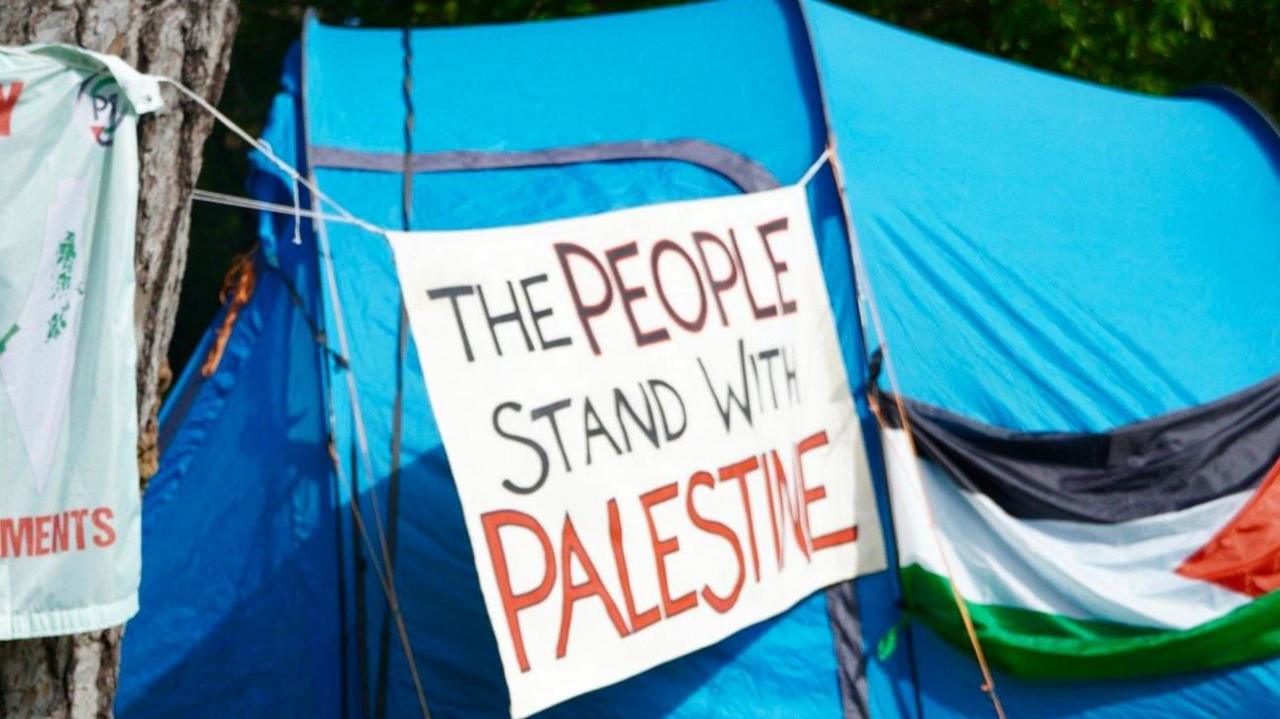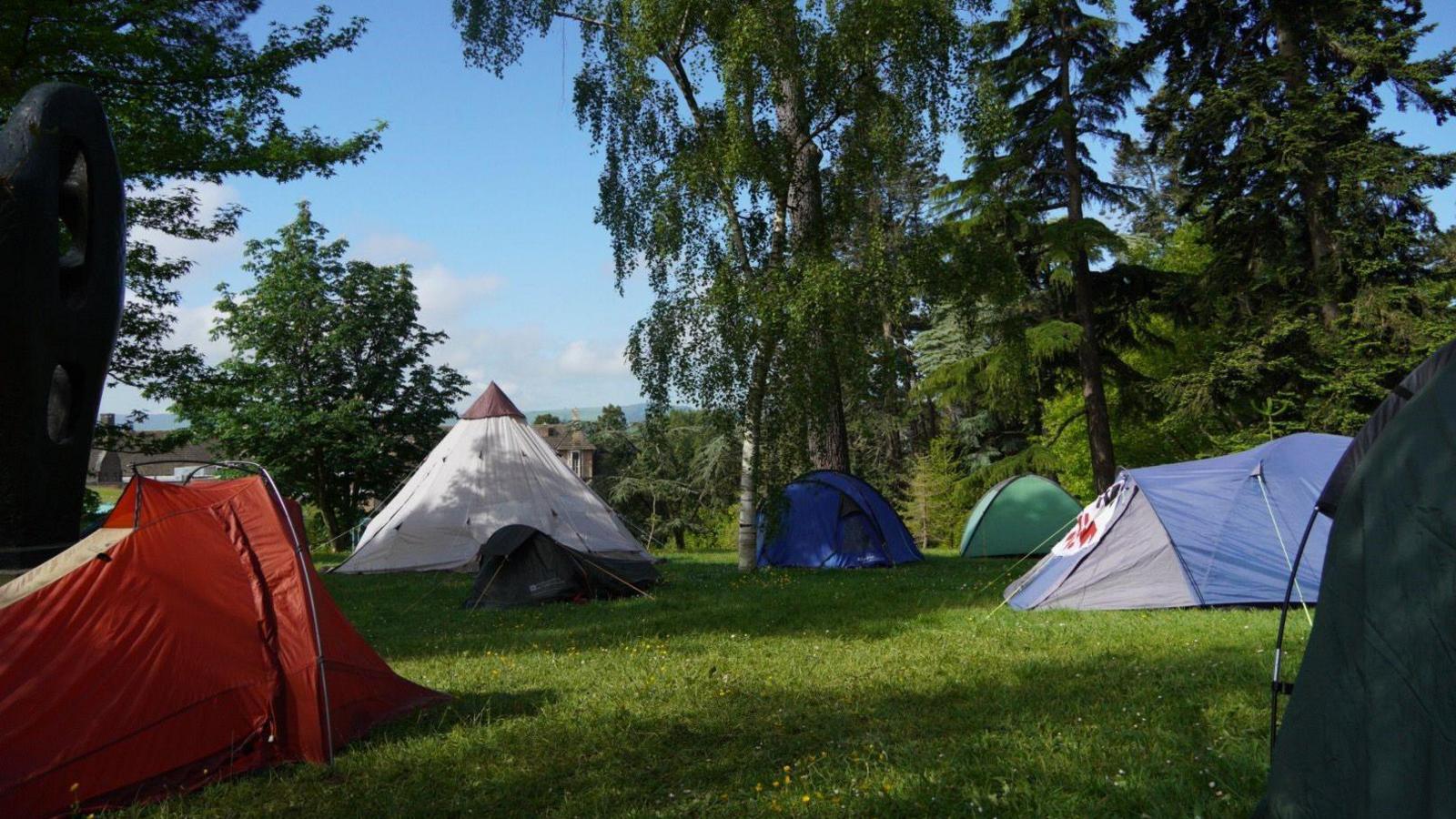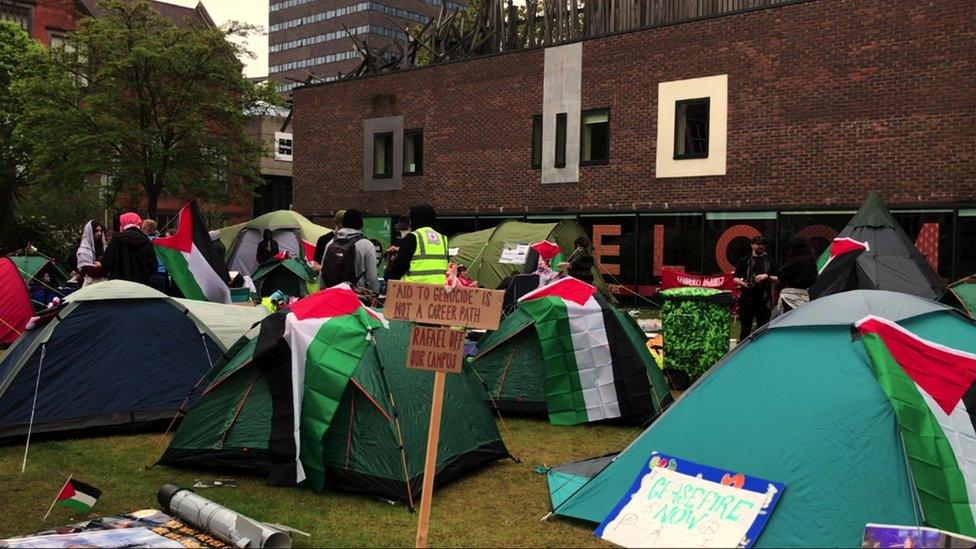Talks between university and protesters break down

Students have been camping on the University of Exeter grounds since 14 May
- Published
Students who have camped out for four weeks in protest against the war in Gaza have reached a "stalemate" with their university.
Between 30 and 40 students have been taking part in the encampment at the University of Exeter campus since 14 May.
The university sent an email to all students on 5 June saying it wanted to close the encampment - claiming protesters had "intimidated" open day visitors.
The protesters have denied any claims of intimidation and said the camp would remain in place.
The group has set out four main demands for the university - to cut any ties with Israeli companies, boycott Israeli universities, set up partnerships with Palestinian universities and safeguard freedom of speech for pro-Palestine supporters.
The university said in its email, which was seen by the BBC, there were no formal partnerships with Israeli universities and it did not invest in any firms that directly funded defence.
The university said it would help to reconstruct Palestinian higher education and it "safeguarded freedom of speech and expression" for everyone at the university.

Leia Baig said the university and protesters were now at a "stalemate"
Leia Baig, a third-year student who was born in Lebanon, said demonstrators had set up camp after "numerous attempts at engaging with the university administration and being met with inaction".
She refuted the claims of "intimidation" made by the university.
Ms Baig said: "It's absolutely not the case, you can see this worldwide, this misrepresentation of protesters, misrepresentation of students.
"We remain confident in our completely peaceful protest."
She said the university and protesters had now reached a "stalemate" in negotiations.
Protester Alex Almond-Colomer said the encampment would continue through the summer holidays.
Chris Kunzler, who is studying for an MA in Middle Eastern studies, said: "We would like the university to match how it claims it acts and markets itself as an institution which is helping build a better world.
"That's really what we want, the university to walk the walk of actually being an institution that respects human rights."

The university said in an email protesters had been asked to leave the "unauthorised encampment"
In the email to students the university said: "We experienced disruption and intimidation of guests during the Saturday Open Day that went beyond acceptable conduct for peaceful protest."
The email said senior leaders had met protesters "to address their escalating protest activities".
It said: "It was also made clear we cannot engage or enter into ‘negotiations’ with any group that undermines our community values and threatens to disrupt university activities.
"Assurances have been sought from the encampment that there will be no repeat of these behaviours, and they have been asked to leave their unauthorised encampment as soon as possible."
The email went on to say if the protesters "adhere to our university values and cease disruptive behaviour, then members of the senior team will continue to meet with them for discussions".
'Respect right to protest'
In a statement the university said: "We are unambiguous in our support for all colleagues and students at this time, including our commitment to protecting the right to debate openly and freely."
It said it was committed to "academic freedom, alongside our duty of care to our community".
The statement added: "We respect the right to protest, providing such protests are carried out safely, respectfully and within the law."
Follow BBC Devon on X (formerly Twitter), external, Facebook, external and Instagram, external. Send your story ideas to spotlight@bbc.co.uk, external.
Related topics
Related internet links
- Published1 May 2024

- Published11 June 2024
